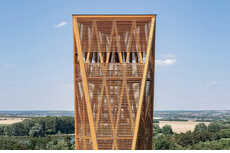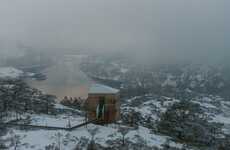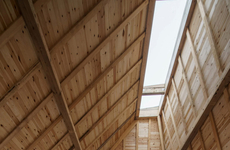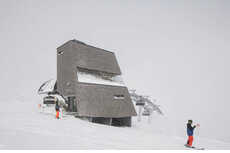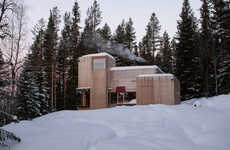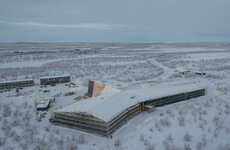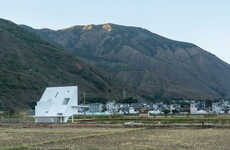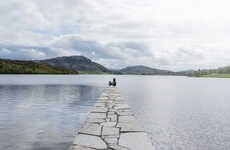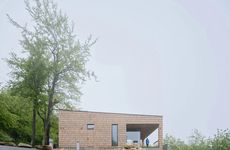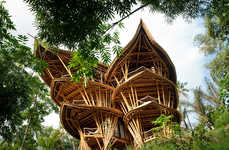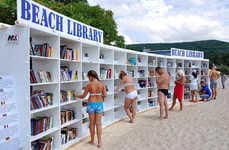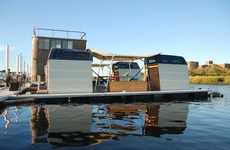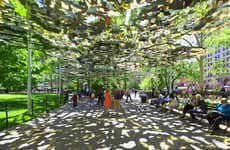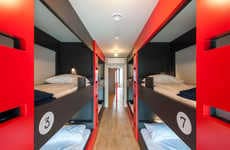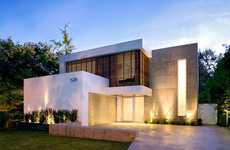
TYIN Tegnestue Architects Construct the Lyset Paa Lista in Norway
Jamie Danielle Munro — May 6, 2014 — World
References: tyinarchitects & designboom
TYIN Tegnestue Architects were the ones responsible for bringing a group of students together from both Norway and Mexico to build this improvised structure.
The building was commissioned by a group of locals who wanted to promote the area for visitors. The landscape is a stunning place to visit, and many individuals were worried that it wasn't receiving the right attention. The last thing they wanted was for the site to develop for a more urban environment, so this lookout as a section for people to come to and observe the natural surroundings. A plan was not put in place to design the building, but instead the entire structure was improvised, using all of the local materials they could get their hands on.
Photo Credits: designboom, tyinarchitects
The building was commissioned by a group of locals who wanted to promote the area for visitors. The landscape is a stunning place to visit, and many individuals were worried that it wasn't receiving the right attention. The last thing they wanted was for the site to develop for a more urban environment, so this lookout as a section for people to come to and observe the natural surroundings. A plan was not put in place to design the building, but instead the entire structure was improvised, using all of the local materials they could get their hands on.
Photo Credits: designboom, tyinarchitects
Trend Themes
1. Sustainable Architecture - Designing structures that promote the natural environment and utilize local resources with improvised structures.
2. Collaborative Construction - Bringing together local people, students, and architects to work on improvised structures using all available resources.
3. Nature-centered Design - Creating structures that are designed to blend in with and accentuate the natural environment of the surrounding area.
Industry Implications
1. Architecture and Building Design - Opportunities exist for architects and designers to focus on improvised structures using sustainable resources and collaborating with locals to promote sustainable environments.
2. Tourism - Improvised structures can promote natural environments for tourist attractions, and businesses can further sponsor the efforts of sustainability to make use of improvised structures.
3. Environmental Conservation - There is an opportunity for partnering with local communities and using improvised structures for educating, observation, and preservation of nature.
5.8
Score
Popularity
Activity
Freshness

